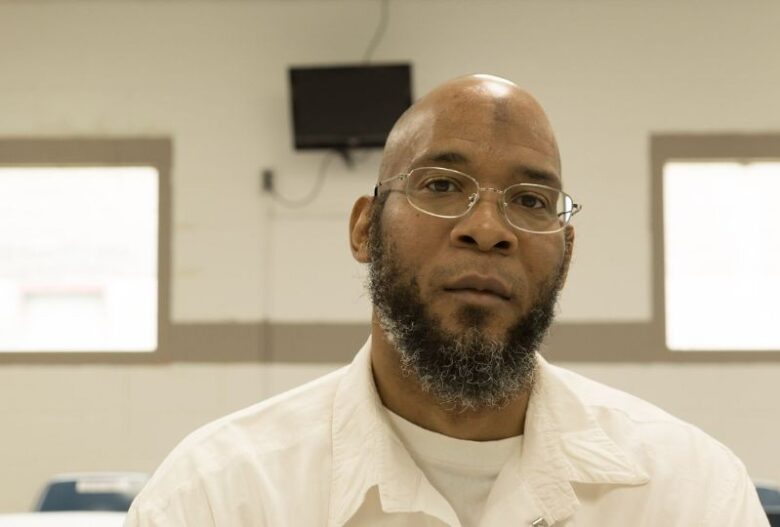Marcellus Williams, a 55-year-old man whose murder conviction was recently challenged by a prosecutor, has been executed by lethal injection.
Williams was put to death shortly after 11:00 PM GMT on Tuesday at a prison in Bonne Terre, Missouri, despite appeals from prosecutors seeking to overturn his conviction. The family of the woman he was accused of murdering had also expressed their support for a life sentence instead of execution.
This execution comes as death row inmates in five US states are scheduled to be executed within the next week.
Who was Marcellus Williams?
Marcellus Williams, a devout Muslim and imam for prisoners, was executed by lethal injection at the age of 55. According to his legal team, he spent 23 years in prison, dedicating much of his time to studying Islam and writing poetry.
He served as the Imam for Muslim inmates at the Potosi Correctional Center and was known as “Khaliifah,” meaning leader in Arabic.
His last statement on September 21 was, “All praise be to Allah in every situation!” His attorneys noted that his faith was central to his identity, and he expressed regret for not discovering it sooner, having turned to religion while incarcerated.
What Was Williams Accused Of?
In 2001, Williams was convicted for the 1998 murder of Felicia Gayle, a former newspaper reporter and social worker who was found stabbed in her home.
Prosecutors claimed that Williams broke into her house on August 11, 1998, picked up a large butcher knife, and stabbed her 43 times before stealing her purse and her husband’s laptop.
They alleged that Williams wore a jacket to conceal bloodstains on his shirt, raising suspicion when his girlfriend questioned his choice of attire on a hot day. She later spotted the stolen items in his car, and Williams sold the laptop shortly thereafter.
Additionally, Henry Cole, a fellow inmate who shared a cell with Williams in 1999, testified that Williams confessed to the murder, providing specific details.
What Did Williams’s Defence Argue?
Williams’s defense argued that there was no forensic evidence linking him to the crime scene, and that the murder weapon had been mishandled, which cast doubt on the DNA evidence. Tests showed that DNA found on the knife belonged to members of the prosecutor’s office who handled it without gloves after initial crime lab tests.
The defense pointed out that both the girlfriend and Cole had felony convictions and were seeking a $10,000 reward. They also noted that evidence such as a bloody shoeprint and hair found at the scene did not match Williams’s.
While Williams did sell the laptop stolen from Gayle’s home, the local prosecutor Wesley Bell indicated that there was evidence suggesting he received it from his girlfriend. Both key witnesses passed away in the years following the trial.
Williams had narrowly avoided execution in 2015 and 2017, but his conviction remained intact. Bell highlighted concerns regarding the exclusion of Black potential jurors, resulting in a jury composed of 11 white members and one Black member. He stated, “Marcellus Williams should be alive today,” emphasizing that there were multiple opportunities to spare him from the death penalty.
What Other Legal Maneuvers Were Used?
In light of DNA concerns, Bell requested a hearing to challenge Williams’s guilt, which was scheduled for August 21.
However, new tests conducted shortly before the hearing revealed that the DNA on the knife belonged to members of the prosecutor’s office.
Without evidence pointing to alternative suspects, the defense reached a compromise: Williams would enter a no-contest plea to first-degree murder in exchange for a life sentence without parole. A no-contest plea is not an admission of guilt but is treated as such for sentencing purposes.
Judge Bruce Hilton approved the agreement, supported by Gayle’s family, but Republican Attorney General Andrew Bailey appealed, leading the state Supreme Court to block the agreement and mandate an evidentiary hearing.
Bailey defended the exclusion of a potential Black juror by stating they resembled each other, saying, “They looked like they were brothers.” He also noted that the knife had been tested, and it wasn’t recognised at the time that touch could transfer DNA.
What Was Ruled on September 12?
On September 12, Judge Hilton ruled that Williams’s first-degree murder conviction and death sentence would remain, stating that his arguments had previously been dismissed.
The state Supreme Court upheld this decision. Governor Michael Parson denied Williams’s clemency request, stating, “No juror nor judge has ever found Williams’ innocence claim to be credible.”
Williams’s conviction primarily relied on the testimonies of two witnesses against him.
What Were Williams’s Last Moments?
Williams’s last meal included chicken wings and Tater Tots. He had a final visit with Imam Jalahii Kacem, whom he had followed, from approximately 4:00 to 5:30 PM GMT.
Witnesses, including Williams’s son and two of his lawyers, were escorted to the prison’s viewing area around 10:50 PM GMT. At 11:00 PM GMT, Attorney General Andrew Bailey confirmed there were no legal barriers to proceed with the execution, which was carried out at 11:01 PM GMT.
Reports indicate that Williams moved his feet under a white sheet and slightly shifted his head before his chest rose and fell a few times. He was pronounced dead at 11:10 PM GMT.
What’s the Current Situation of the Death Penalty in the U.S.?
Williams’s case highlights the potential risks of executing innocent individuals. According to the Death Penalty Information Center, at least 200 people have been wrongfully convicted and sentenced to death since 1973.
Currently, inmates on death row in five states are scheduled for execution within the week.
Williams was the third inmate executed in Missouri this year and the 100th since the state reinstated the death penalty in 1989.
If the remaining executions in Alabama and Oklahoma occur this week, it would mark the first time in 20 years that five executions have taken place within a seven-day period. A total of 48 executions are scheduled across 11 states for 2024, with 16 already carried out.
YOU MAY ALSO READ: ECOWAS approves design for $15bn Lagos-Abidjan highway project









Got a Question?
Find us on Socials or Contact us and we’ll get back to you as soon as possible.